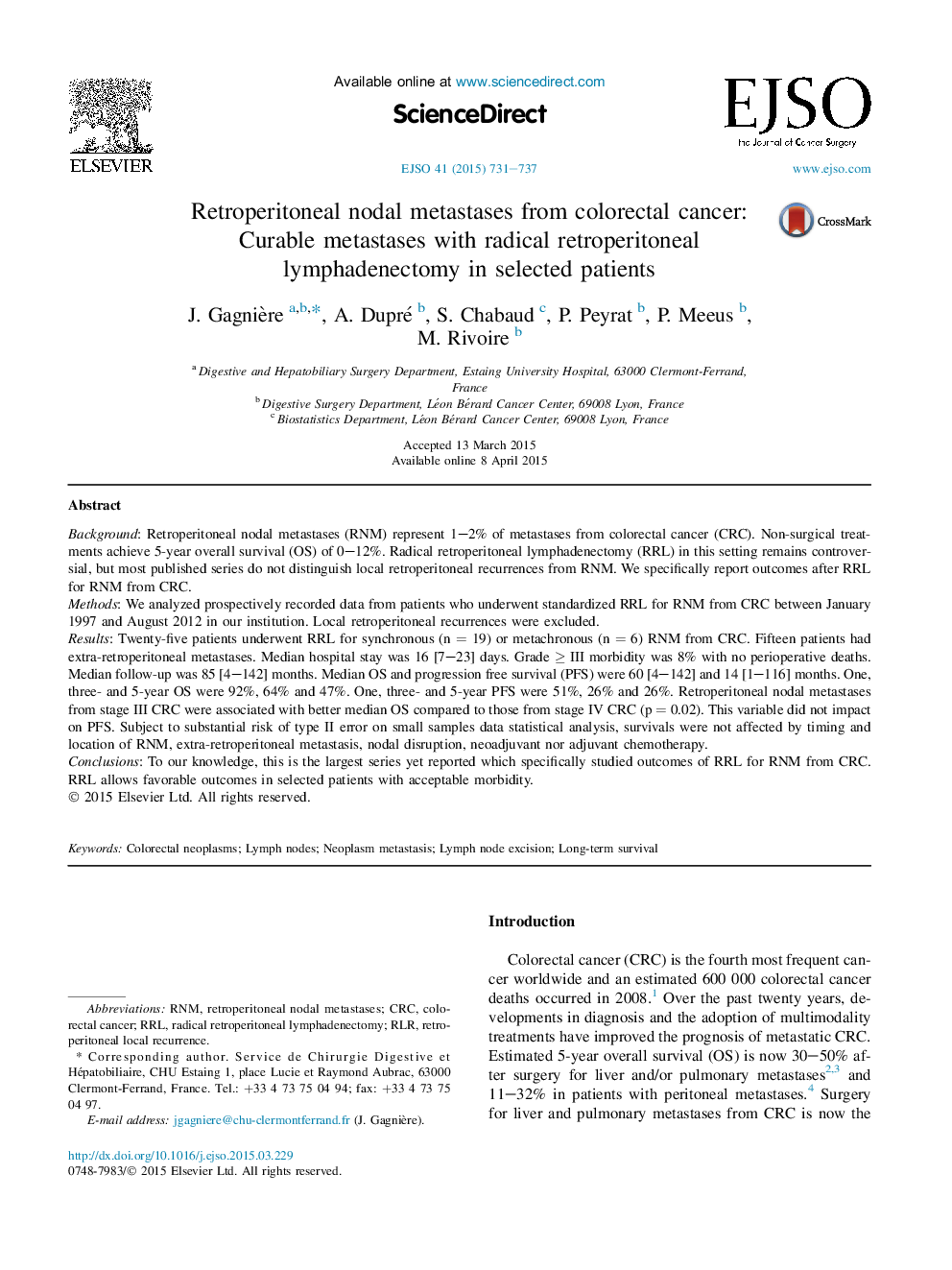| Article ID | Journal | Published Year | Pages | File Type |
|---|---|---|---|---|
| 3984801 | European Journal of Surgical Oncology (EJSO) | 2015 | 7 Pages |
BackgroundRetroperitoneal nodal metastases (RNM) represent 1–2% of metastases from colorectal cancer (CRC). Non-surgical treatments achieve 5-year overall survival (OS) of 0–12%. Radical retroperitoneal lymphadenectomy (RRL) in this setting remains controversial, but most published series do not distinguish local retroperitoneal recurrences from RNM. We specifically report outcomes after RRL for RNM from CRC.MethodsWe analyzed prospectively recorded data from patients who underwent standardized RRL for RNM from CRC between January 1997 and August 2012 in our institution. Local retroperitoneal recurrences were excluded.ResultsTwenty-five patients underwent RRL for synchronous (n = 19) or metachronous (n = 6) RNM from CRC. Fifteen patients had extra-retroperitoneal metastases. Median hospital stay was 16 [7–23] days. Grade ≥ III morbidity was 8% with no perioperative deaths. Median follow-up was 85 [4–142] months. Median OS and progression free survival (PFS) were 60 [4–142] and 14 [1–116] months. One, three- and 5-year OS were 92%, 64% and 47%. One, three- and 5-year PFS were 51%, 26% and 26%. Retroperitoneal nodal metastases from stage III CRC were associated with better median OS compared to those from stage IV CRC (p = 0.02). This variable did not impact on PFS. Subject to substantial risk of type II error on small samples data statistical analysis, survivals were not affected by timing and location of RNM, extra-retroperitoneal metastasis, nodal disruption, neoadjuvant nor adjuvant chemotherapy.ConclusionsTo our knowledge, this is the largest series yet reported which specifically studied outcomes of RRL for RNM from CRC. RRL allows favorable outcomes in selected patients with acceptable morbidity.
